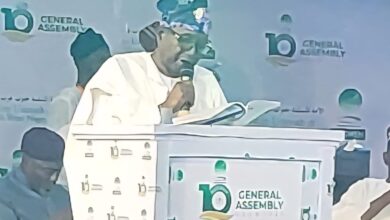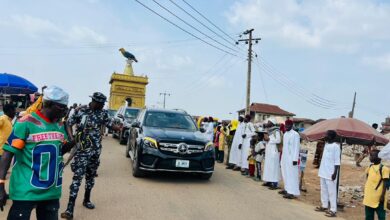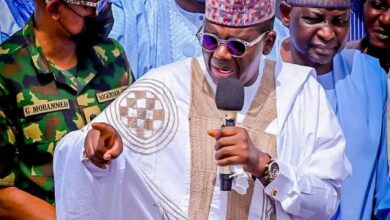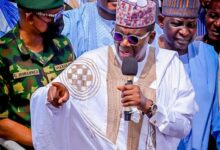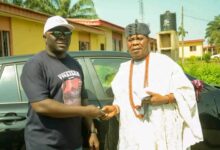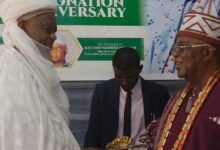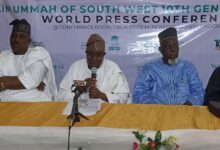My people of Yoruba Land, let’s think differently and see why Fulani are not our problem
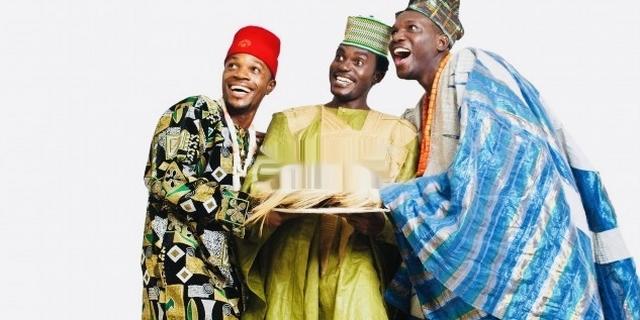
*”The diversity of Nigerian Tribes: A look at the unique cultures and traditions”
By KOLA ISRAEL
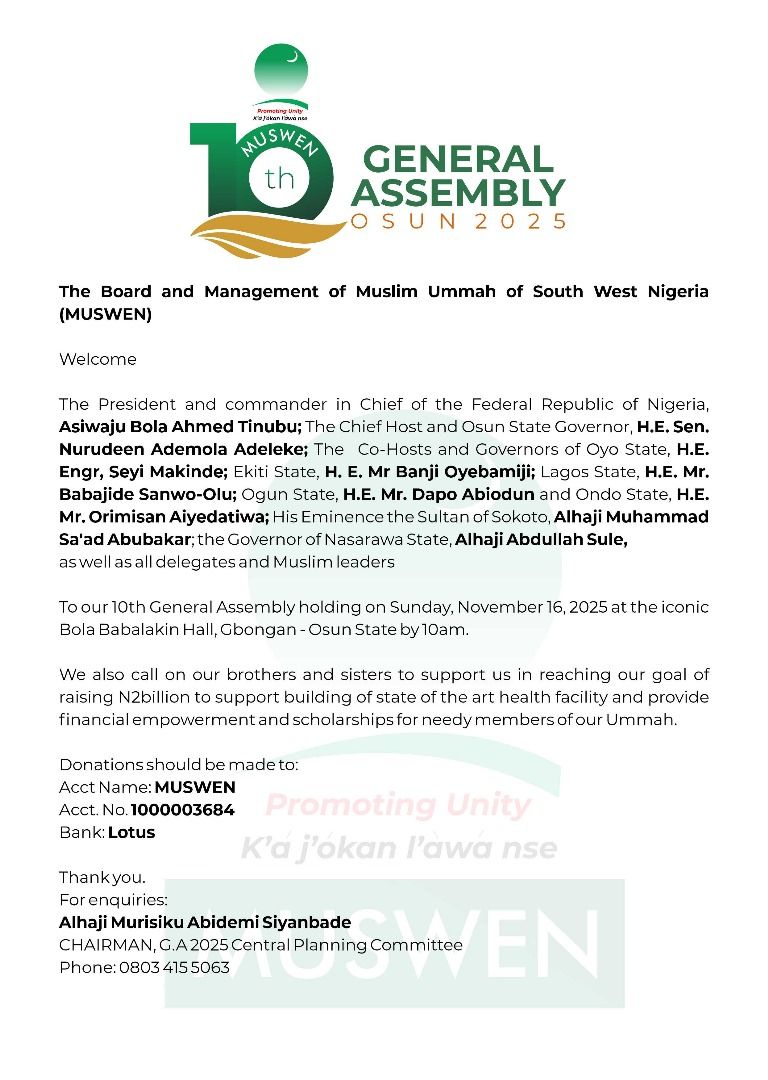
“We have said this time without number that there is nothing wrong with our togetherness but something seriously is profoundly wrong with the tendency of asobiya (Arabic word for tribalism) in us.”
My South West people of Yoruba Land, your constitutional leaders are President Bola Ahmed Tinubu, Governors Babajide Sanwo-Olu (Lagos), Dapo Abiodun (Ogun), Seyi Makinde (Oyo), Ademola Adeleke (Osun), Orimisan Aiyedatiwa (Ondo) and Biodun Oyebanji (Ekiti). But you go ahead choosing other leaders for yourselves in terms of your daily lives and in the end draw calamities upon yourselves socio-economically, politically and security wise. Then, while you are running your lives your own chosen way, you don’t recognise these constitutional leaders but when you are enveloped in the calamities you brought upon yourselves, then you begin to cry and scream their names. And when they are able to tell you why you cannot blame them, you begin to remember it is time to break Nigeria into pieces.
Think deeply, is it only by breaking up we can get Nigeria better? Was Nigeria not a better country before? I was born in 1972 and I once witnessed Naira stronger than Dollar (N.90 -$1) meaning that what Nigeria’s 90 kobo could by, would value more than what $1 could buy. Were there no Hausa-Fulani in Nigeria then? In fact, Fulani were controllers of Nigeria then. Tarawa Balewa, of course you had Yorubas and Igbo too working in cooperation with Hausa-Fulani.
Then Nigeria had industries: Northern Nigeria’s was reason for the establishment of the Nigerian Railways because the coaches were used to move their cottons and others including groundnut dairy products done by Sir Ahmadu Bello, while the Western Nigerian cocoa was done by Awolowo and Michael Okpara did well on the Eastern Nigerian belt.
Although Southern Nigeria, despite not matching up to more then two states of Northern Nigeria (as we now see) have always been the region that wanted to dominate Northern Nigeria that is the largest by all standard (against what we have been told about North contributing nothing to Nigerian economy than dominating power). It is now clear that without North, Southern Nigeria (take out Lagos State) may find it difficult to survive alone. And it is not certain that Lagos State will want to go with Oduduwa Republic considering the unconstitutional takeover of its power and usurpation of rights and opportunities of indigenes of the state by Yoruba indigenes of other South West states.
The bashing of Fulani people of Nigeria and, by extension, the bulling of Hausa-Fulani peoples of Northern Nigeria as we dismiss them as contributing nothing to the national economy had gotten to now stop. It is bullying to say the North is parasite because we, especially those on the riverine area who believe that because they they are only ones that have oil, so North sharing from the wealth of the oil is wrong. It is a character damaging and ethnic profiling kind of thing that must stop. Like the South is blessed with natural resources so is the North, which even has more especially solid minerals and agriculture with huge capacity to feed the whole of the nation with their food production, poultry and animal husbandry enough to solve problem of food security in Nigeria.
Instead for us to realise and accept these realities that steer us in our faces, we are now shifting blames of our hardships to Hausa-Fulani and the professors and some politically established, unconstitutionally created armed groups of non-state actors among our tribesmen and within our region are even telling us that the only way out is independence of Oduduwa Republic, at a time that they no longer talk, those who for the whole of eight years of Fulani’s Muhammadu Buhari tenure agitated insisting that the country must break up for them to have their Republic of Biafra. Sad! But these are the same Yoruba South West who have for over 24 years left their own respective states of Ogun, Ekiti, Oyo, Osun and Ondo and have laid claims to powers to govern Lagos State while pushing the real owners of the state to one corner.
They are now the ones agitating for break up of Nigeria so that they have Oduduwa Republic. If they have done this to Lagos indigenes in Nigeria, who says they will not do worse than that to them like to others in an Oduduwa Republic setting? It is the reason Yoruba Nation is now popular because that is what Oduduwa Republic advocates are using as militant body. And one of their sadist spokesman called, Maiyegun General, sitting in Glasgow, Scotland in the United Kingdom via social media.
Thinking that Fulani is our number one enemy doing criminality in our Yoruba Land forests, we forced our governors to establish the South West Security Network (SWSN), Amotekun. When Amotekun arrested Fulani and police investigation found it to be misplacement of judgment and wrong arrest, we hear nothing. No apology. And when Amotekun arrested criminals and found them to be Yoruba, they told us nothing. Cover up of own crimes while wanting to expose that of others all the times? Must our state or regionally owned security network be established to fight criminals only when they are Fulani and be lenient when they are fellow Yoruba? It is injustice that we do against ourselves. We should take responsibility for some of the consequences of those evils that we do to ourselves as they now come steering us in the face.
There have been blackmails and negative propaganda that tend to say all the kidnappers operating in Yoruba states of South West are no other than Fulani. Sunday Igboho in a latest video this month of February 2024 still appealed to governors of Yoruba states of South West to support his Yoruba Nation to liberate their Yoruba Land from the Fulani people who, according to him, are kidnapping “Our Yoruba fathers, mothers, brothers and sisters”. When you take powers from leaders that you are empowered by the Constitution to choose for yourselves and give it to non-state actors who are mainly mediocre, hoodlums and thugs as well now as additionally yahoo plus gang members, that is what you see.
We have said this time without number that there is nothing wrong with our togetherness but something seriously is profoundly wrong with the tendency of Asobiya (Arabic word for tribalism) in us. I once witnessed a bus driver in Lagos, who was reacting to KAI (Kick Against Indiscipline) officials arresting traffic hawkers and he said, “Only God will save us from these Fulani people who are controlling Nigeria and are making life difficult for our people by arresting them. When Tinubu gets to power as President, we will be free.” He said this and to the shock of myself and few others. There were others who believed him.
What this means is that, Yoruba people, who used to be on the lead in terms of education and intelligence and were glorified and proud of themselves as same, can now talk like that. If a globally recognised professor could ginger Governor Rotimi Akeredolu to go to war over Owo Church attack he and Afenifere rushed into judgment over, to claim as Fulani declaration of war on Yoruba Land, whereas the attackers were nothing near Fulani talkless of Hausa, what else can we say? If that is all we can have from the educated and knowledgeable among us within the marriage of Nigeria, what else can we expect? Whereas they see that when Fulani had powers to openly wage wars to capture any land, they did not do so because they and other warring (even Yoruba) kingdoms had succumbed to colonially documented provinces and established boundaries. Can we say the educated ones among us are our problems?
As things currently stand, truth of insecurity – not only in Yoruba Land – now is that criminals are raging. And they are not Hausa-Fulani but simply criminals who have their recruits from all the tribes: Igbo, Yoruba, Hausa-Fulani, and among them you have members who are Christians and who are Muslims but are not sent by their tribes or religions. Why then do we have leaders of Yoruba tribe making it look like there is warrior or war situation wherein Fulani warriors have amassed weapons to wage war and take over entire Yoruba Land each time kidnap happens? And we have seen videos of kidnappers arrested in same Yoruba Land and they are indigenes of the tribe. Why ethnic profiling of criminals therefore?
There could be Fulani among them but they are all simply partners in crime. In Edo, there was an unpublicised kidnap case where Fulani were involved but the bank account used to collect the ransom, it was gathered, was owned by an Igbo. How do you now who are hailing Sunday Igbo, who now spits fire from his new location in Germany, place that?
Thee diversity of Nigerian Tribes: A look at the unique cultures and traditions
Before I end this piece, let me bring up a story titled, “Thee diversity of Nigerian Tribes: A look at the unique cultures and traditions” authored by Joshua U. Abu on March 28, 2023 and published online. Source: https://nicholasidoko.com/blog/2023/03/28/the-diversity-of-nigerian-tribes-a-look-at-the-unique-cultures-and-traditions/
It goes thus:
Nigeria is home to over 250 ethnic groups and tribes, each with its unique set of customs, beliefs, and traditions. These tribes can be grouped into three main tribal groupings based on their geographic locations and linguistic affiliations.
Understanding these tribal groupings is essential because it helps us appreciate the diversity and richness of Nigerian cultures and traditions. Here, we will explore each of these tribal groupings in detail.
The three main Nigerian tribes are: The Hausa-Fulani, Yoruba and Igbo. Each of these groups has its distinctive cultural practices, beliefs and traditions that have been passed down from generation to generation.
The Hausa-Fulani
The Hausa-Fulani tribe is the largest ethnic group in Nigeria, primarily located in the northern part of the country. They are predominantly Muslims and have a rich history dating back to the 11th century.
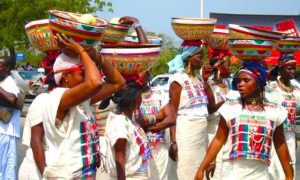
The Hausa-Fulani are known for their hospitality, love for commerce, and skill in crafts such as leatherwork, weaving, and metalwork.
Additionally, their cultural practices and beliefs are rooted in Islam. This influences their daily lives, including their traditional clothing, food, and religious practices.
Some significant Hausa-Fulani festivals include the Eid-el-Fitr, and Eid-el-Kabir. The annual Durbar Festival is another colorful display of horsemanship and culture.
The Yoruba
The Yoruba tribe is the second-largest ethnic group in Nigeria and is primarily located in the southwestern part of the country. As a result, Yorubas have a rich history dating back to the 12th century.
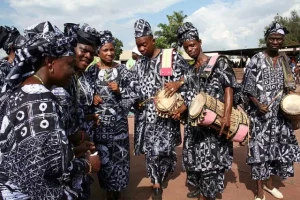
In addition, their cultural practices and beliefs are heavily influenced by their religion, Yoruba mythology, and folklore.
The Yoruba tribe is famous for its bright festivals and ceremonies, such as the annual Ojude Oba Festival, Egungun Festival, and the Osun Osogbo Festival.
Their traditional attires are vibrant, consisting of brightly colored fabrics, beads, and accessories. The Yoruba people are also renowned for their art, music, and dance, which are often used to express their beliefs and cultural heritage.
The Yoruba religion is a mixture of Christianity, Islam, and traditional beliefs. They believe in the existence of a supreme being, Olodumare, who created the universe and everything in it. The Yoruba people also believe in lesser gods and goddesses, believed to control various aspects of life, such as fertility, childbirth, and the harvest.
Moreover, Yorubas are known for their respect for elders, family values, and hospitality. They also place a high value on education, and many Yoruba people are highly educated and successful in various fields.
The Igbo
Igbos are the third-largest ethnic group in Nigeria. The tribe is primarily located in the southeastern part of the country. The Igbo people have a rich cultural heritage dating back to pre-colonial times.
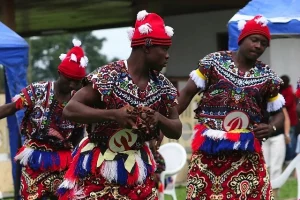
Their cultural practices and beliefs are deeply rooted in their religion, which is a mix of Christianity, traditional beliefs, and customs.
The Igbo people are renowned for their traditional dance and music, such as the Ekwe, Ogene, and Igba.
They also have a rich culinary tradition, with their delicacies such as Ofe Oha (Oha Soup), Nkwobi, and Abacha, which are enjoyed both within and outside the country. Some of the significant Igbo festivals include the New Yam Festival (Iwa Ji), Mmanwu Festival, and the Ofala Festival.
Concluding my article
The truth of the problem of Yoruba (Igbo too) is simply the hypocrisy that we do to ourselves through the “cover our own crimes while exposing the crimes of others” syndrome that we practice. We should think out of the box, think differently and go and know that Hausa-Fulani are not our problem. We should come to term with the reality of our togetherness and stop seeing our fellow citizens from other tribes as parasite or evils. We should together join hands against criminals in our midst. No tribe or religion is hub for criminality. Together we will be great as “One People, One Nation!” Our diversity our strength!! Say to the world: Nigeria First! Nigeria First!! and Nigeria First!!!


